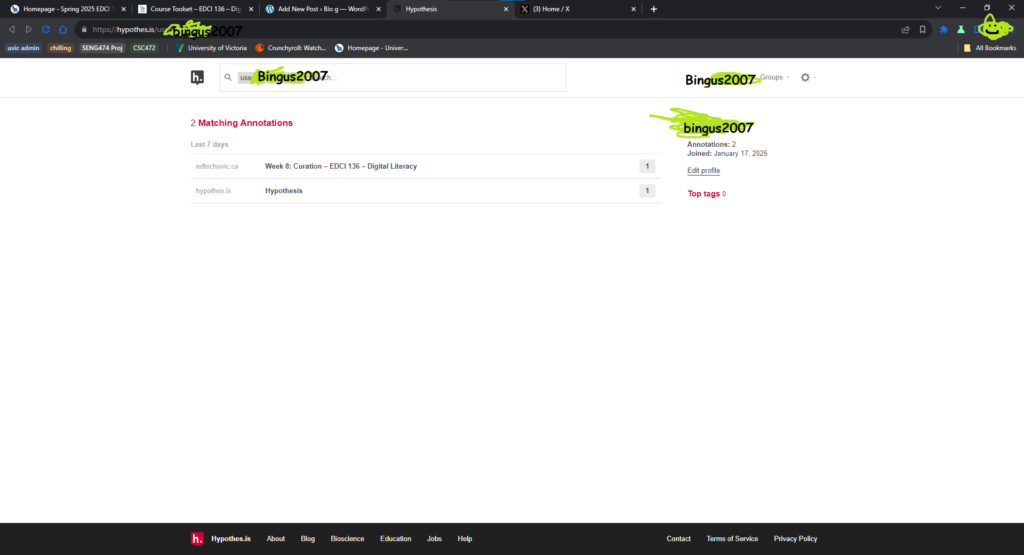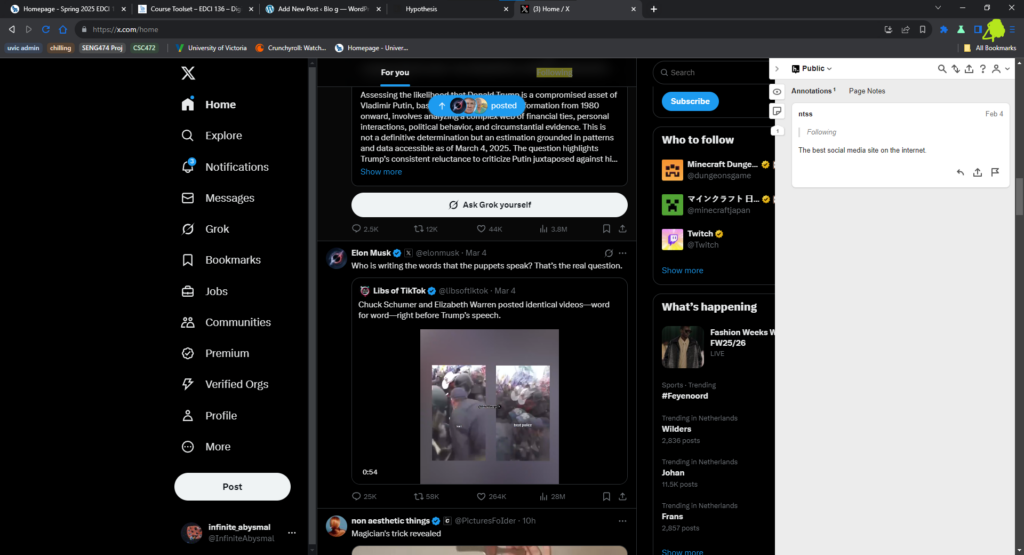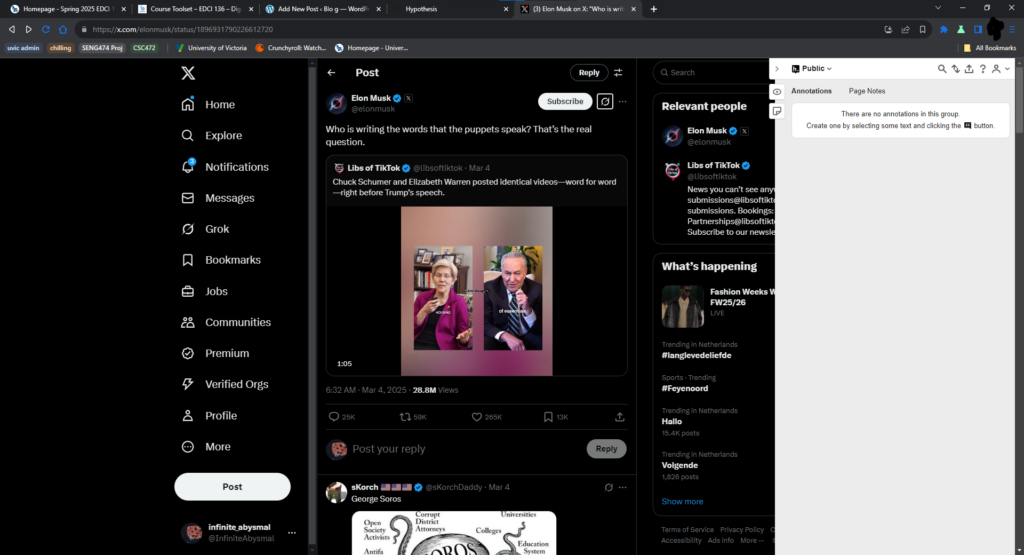(This post is better with annotations enabled, use hypothes.is for the best viewing experience)
Annotation in online spaces is an interesting concept, but I’ll admit that I don’t see a large amount of practicality. For note taking, while having quick notes on a website itself is useful, having to navigate around to look at them reduces their effectiveness as an actual note taking method, in my opinion, making it a good choice for a review of some online content, but not necessarily for gathering information.
Additionally, the menu for viewing your own annotations doesn’t actually show the annotations themselves, meaning you do have to be on a page for this to be usable.

This only reduces the notetaking potential, though, so there is still use for reviewing content or sharing information with others. To test this, I visited the website formerly known as Twitter, to gather information about what was annotated. I was disappointed to see that there was exactly one annotation on the main page, reading simply, “the best social media site on the internet.”

This pattern was not changed when I opened a post by Elon Musk, on the front page. I had assumed that since the main page was largely automatically generated at the time of opening the website, there would be very little to annotate, which would explain the lack of annotation. This however, did not account for the lack of annotation on individual posts. On this tweet by Elon musk, which is primed for someone to comment on its veracity, there are no comments at all, despite the fact that it was one of the first ones which were show upon opening the site.

For this reason, I give hypothes.is a 6/10. A solid software for personal review, but perhaps not world changing. I am uncertain how well it works for collaborative efforts.